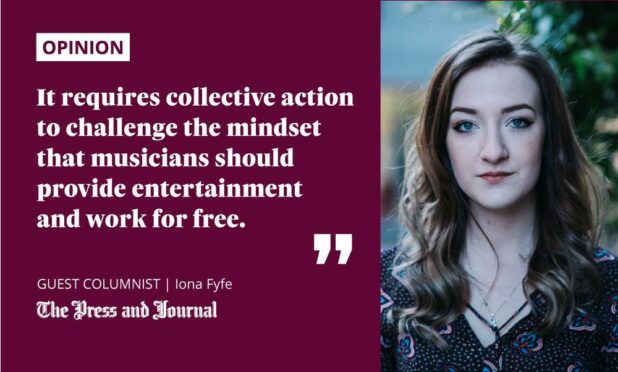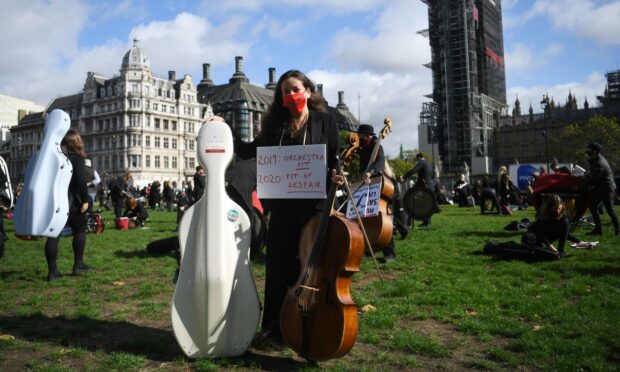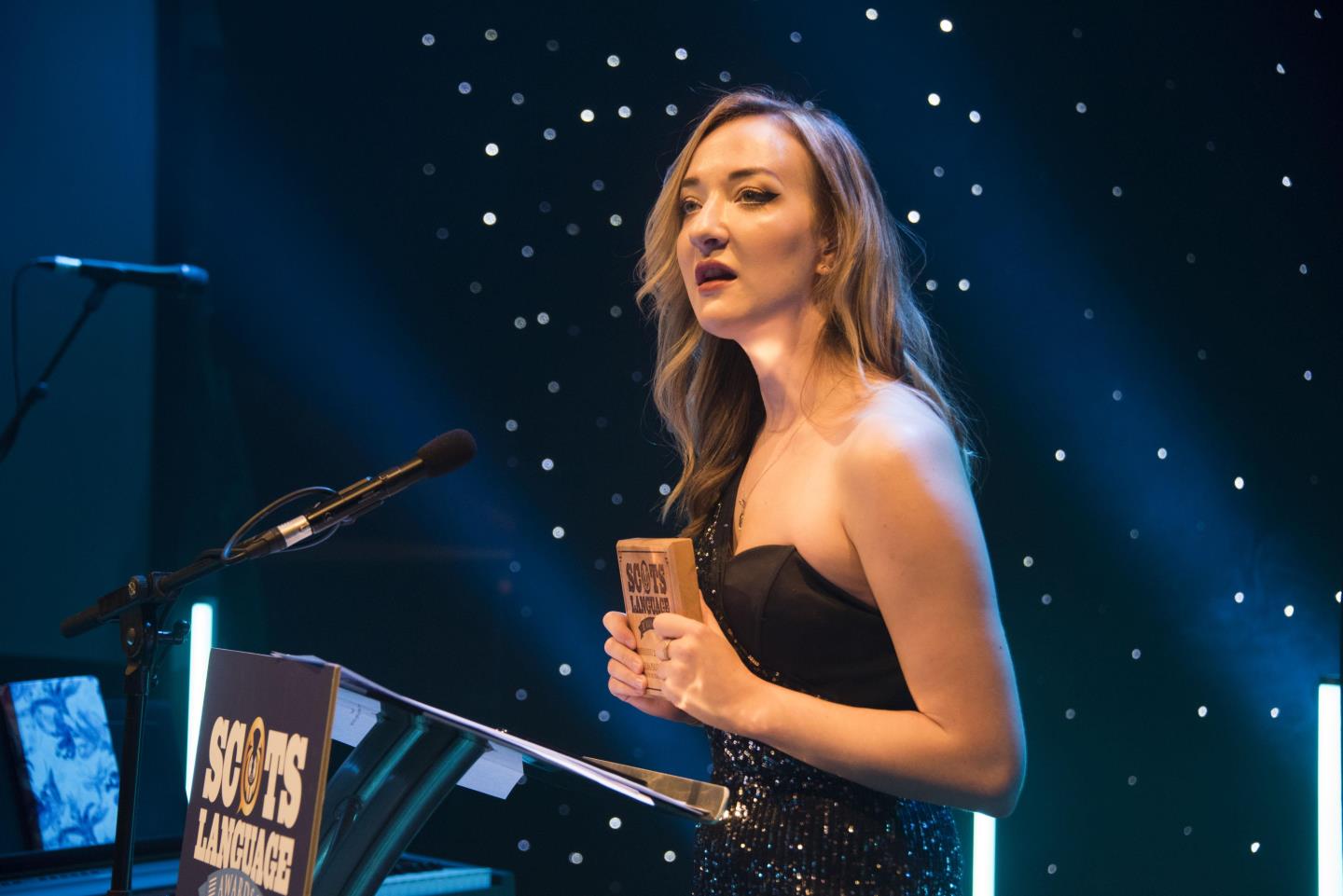Last week the Scottish Rugby Union (SRU) posted an open call on its website and social media channels.
They wanted Scottish musicians to submit music to be in with the chance of being promoted on social media through the SRU Scotland Playlist, and gain the opportunity to perform to a capacity audience at the BT Murrayfield stadium.

The hitch? The “opportunity” was completely unremunerated, with no performance fee or royalties due to the performers for their time, skills, and expertise.
Instead, the artists were offered tickets for them and their families to “enjoy the game and their performance“. I’m sorry, but exposure doesn’t pay the rent and neither do free tickets to a rugby game.
UK Government continues to disappoint
In March 2020, the events and music industry were the first to shut, and the last to tentatively open back up. The pandemic, compounded with touring restrictions brought into place by Brexit, has disproportionately affected the livelihoods of creative freelancers, with 87% of musicians earning less than £20,000 in 2021 – well below the UK average income of £29,600.
The UK Government have time and time again failed musicians and creative freelancers throughout the pandemic. First, with a lack of meaningful financial support for freelancers – 40% of musicians were initially ineligible to claim from the Self-Employment Income Support Scheme (SEISS) – and secondly with a degrading social media campaign calling for creatives and artists alike to “retrain”.
In comparison to the Scottish Government, which made the Creative Scotland Bridging Bursary available to musicians within a month and a half of the initial lockdown, the tone-deafness of the UK Government continues to disappoint, but not surprise, those in the industry.
Blatant attempts to take advantage of artists must stop
Before the pandemic, I made my sole income through recording and performing with my band in the UK, Europe and as far as Canada, Australia, and the USA. I trained at The Royal Conservatoire of Scotland and graduated with a degree in Traditional Music. Music isn’t my hobby, it’s my job.
Highly skilled musicians should not be asked to work for free, and the SRU’s blatant attempt to take advantage of artists did not go unnoticed on social media
As an emerging artist, trying to find my feet again after 18 months of not being able to perform live is hard enough without large organisations such as the Scottish Rugby Union attempting to exploit the situation by trying to get musicians to work for free under the guise of “exposure”.
In stark comparison to this insensitive faux pas by the Scottish Rugby Union, other sporting organisations have supported those working in the arts by providing freelance employment opportunities during a period when live music was curtailed.
Earlier this year, myself and my band were commissioned on a freelance basis by Aberdeen Football Club to record the club’s unofficial anthem, The Northern Lights of Old Aberdeen, which was set to a slick video promoting the launch of the club’s season ticket sales.
I subsequently had the opportunity to perform at Pittodrie and was fairly paid at Musicians’ Union rates for mine and my fellow musicians’ time. The project employed seven people who worked in the creative industries – four musicians, an audio master engineer, a distributor, and a publicist. Organisations, if you want to work with musicians, this is how you do it.
Highly skilled musicians should not be asked to work for free, and the SRU’s blatant attempt to take advantage of artists, who have not been able to perform live as a means of work for 18 months, did not go unnoticed on social media.
Art was there for us when we needed it
Within minutes Scottish Rugby swiftly turned off commenting on Facebook, but couldn’t restrict Twitter mentions.
Disgraceful! Rug's been pulled out from under the feet of musicians for the past 19 months and @scotlandteam want to arrange their pre-match entertainment through the exploitation of desperate, talented musicians in return for some free tickets. 🤬
— Liz Swainson (@swainsone) September 25, 2021
So often, it is the case that everyone in the room gets paid a fair wage but the musicians. It requires collective action to challenge the mindset that musicians should provide entertainment and work for free. The Musicians Union were tagged in several tweets and swiftly initiated a discussion with the SRU.
Barry Dallman, the Musicians Union Regional Organiser for Scotland and Northern Ireland stated: “Following a productive discussion, Scottish Rugby has confirmed it will be offering payment to all bands performing on the ‘Scotland’s Playlist’ initiative during the Autumn Nations Series.”
The players, coaches, groundstaff and security team will all be getting paid for their work, why not pay the union rate to musicians?
— Donnchadh Sneddon (@DrDuncanSneddon) September 25, 2021
The Musicians’ Union, of which I serve as a committee member of the Scotland and Northern Ireland regional branch, has truly shown that through working with those who engage musicians, educating them, and challenging assumptions, we can highlight the fact that music is a profession and not just a hobby.
A spokesperson for Scottish Rugby said: “We are happy to take guidance from the Musicians Union to ensure that the acts participating are appropriately supported and their professional work is paid for accordingly.”
Whilst this is a welcome U-turn, I can’t stress enough that after 18 long months of financial hardship, organisations and engagers of all sorts simply must do better in treating musicians fairly.
As the world dipped in and out of lockdowns, we took solace in art. Now we must show our gratitude in respecting the practitioners who make the art and pay them properly.
Iona Fyfe is from Aberdeenshire and is Scots singer of the year

